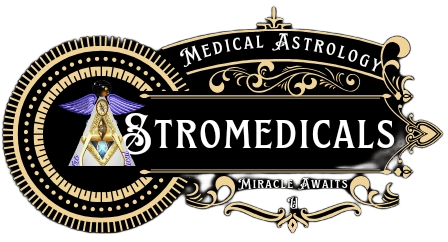Controlling physical pain through brain is not about denying or ignoring the pain, but about changing how we perceive and respond to it. Pain is an inescapable part of the human experience. Whether it’s a nagging headache, chronic back pain, or the sharp sting of an injury. We all encounter physical pain at some point in our lives. Traditionally, pain has been treated with medications, surgeries, or physical therapy. But there’s a growing recognition of the power of the mind in managing and even alleviating pain. Dr. Aradhana Asthana, a respected Clinical Psychologist, emphasizes that our brains hold a remarkable ability to control physical pain. An insight grounded in both psychological theory and emerging scientific evidence.
Understanding the Mind-Body Connection
The first step in controlling physical pain through the brain. According to Dr. Asthana, is understanding the intricate connection between the mind and body. Pain is not just a physical sensation; it’s a subjective experience that is influenced by our thoughts, emotions, and beliefs. When we experience pain, it isn’t merely a signal from our injured body part but a complex process that involves the brain interpreting and responding to these signals.
For example, two people with the same injury might experience pain differently. One might find the pain unbearable, while the other may describe it as mildly uncomfortable. This difference can be attributed to how their brains process and interpret pain signals. Influenced by factors such as past experiences, expectations, and emotional state.
Cognitive Behavioral Therapy (CBT) and Pain Management
One of the most effective psychological approaches to pain management, as per Dr. Asthana, is Cognitive Behavioral Therapy (CBT). CBT is based on the concept that our thoughts, feelings, and behaviors are interconnected. And that changing negative thought patterns can influence our emotional and physical well-being.
In the context of pain management, CBT helps individuals identify and modify negative thoughts about pain. Such as catastrophizing (the belief that the pain will never go away or that it’s the worst pain imaginable). By challenging these thoughts and replacing them with more realistic and positive ones, individuals can reduce their perception of pain.
For instance, instead of thinking, “This pain is ruining my life,” CBT encourages the reframing of thoughts to something more balanced like, “This pain is challenging, but I can manage it, and it will get better with time.” This shift in perspective can lead to a decrease in the intensity of pain, as the brain becomes less focused on the distress associated with it.

Mindfulness and Pain Control
Dr. Asthana also advocates for the use of mindfulness practices to manage physical pain. Mindfulness involves paying attention to the present moment without judgment, which can help individuals accept their pain rather than resist or fight against it. This acceptance is crucial because the struggle to avoid or eliminate pain often intensifies the experience.
Research shows that mindfulness meditation can reduce pain by altering the brain’s response to it. During mindfulness meditation, individuals learn to observe their pain without getting caught up in the emotional reactions to it, such as frustration or fear. This practice can diminish the brain’s perception of pain, making it feel less intense and more manageable.
A study published in the Journal of Neuroscience found that participants who practiced mindfulness meditation experienced significant reductions in pain intensity and unpleasantness. The researchers concluded that mindfulness meditation might achieve this by decreasing activity in the brain regions associated with pain processing, such as the primary somatosensory cortex, while increasing activity in areas related to emotional regulation.
The Role of Neuroplasticity in Pain Management
Neuroplasticity, the brain’s ability to reorganize itself by forming new neural connections, is another key concept in controlling physical pain through the brain. Dr. Asthana explains that chronic pain can sometimes result from the brain getting “stuck” in a pain loop, where it continues to send pain signals even after the original injury has healed.
However, through techniques like CBT, mindfulness, and even visualization, individuals can harness neuroplasticity to “retrain” the brain to break out of this loop. Visualization, for example, involves imagining the pain dissipating or visualizing oneself in a pain-free state. Over time, this can help rewire the brain to reduce the intensity or frequency of pain signals.
The Power of Positive Emotions and Pain
Emotions play a significant role in how we experience pain. Negative emotions like anxiety, depression, and anger can amplify pain, while positive emotions can have the opposite effect. Dr. Asthana highlights that cultivating positive emotions such as gratitude, joy, and contentment can be a powerful tool in pain management.
Engaging in activities that bring joy and foster positive emotions, such as spending time with loved ones, pursuing hobbies, or practicing gratitude, can trigger the release of endorphins—natural painkillers produced by the brain. Endorphins not only help to reduce the perception of pain but also enhance overall well-being.
Practical Steps for Controlling Pain Through Brain
Dr. Asthana offers several practical steps that individuals can take to harness the power of their brains in controlling physical pain:
- Practice Mindfulness Meditation: Set aside time each day to practice mindfulness meditation. Focus on your breath, observe your thoughts and sensations without judgment, and gently bring your attention back to the present moment whenever your mind wanders.
- Reframe Negative Thoughts: Pay attention to your thoughts about pain. If you notice negative or catastrophic thinking, challenge these thoughts and replace them with more balanced and positive ones.
- Engage in Visualization: Spend a few minutes each day visualizing yourself in a state of comfort and ease. Imagine the pain diminishing or see yourself engaging in activities you enjoy, free from pain.
- Cultivate Positive Emotions: Make time for activities that bring you joy and foster positive emotions. This could be anything from spending time with loved ones to practicing gratitude or engaging in a favorite hobby.
- Seek Professional Support: If pain is significantly impacting your quality of life, consider seeking support from a psychologist trained in pain management techniques. They can provide personalized guidance and strategies to help you manage your pain more effectively.
Conclusion
Dr. Aradhana Asthana’s insights underscore the profound influence that our thoughts, emotions, and beliefs have on our experience of pain. By leveraging techniques like CBT, mindfulness, and visualization. We can tap into the brain’s remarkable ability to regulate pain, leading to a more balanced and manageable experience. Ultimately, the mind can be one of our most powerful allies in the journey toward pain relief and improved well-being.










